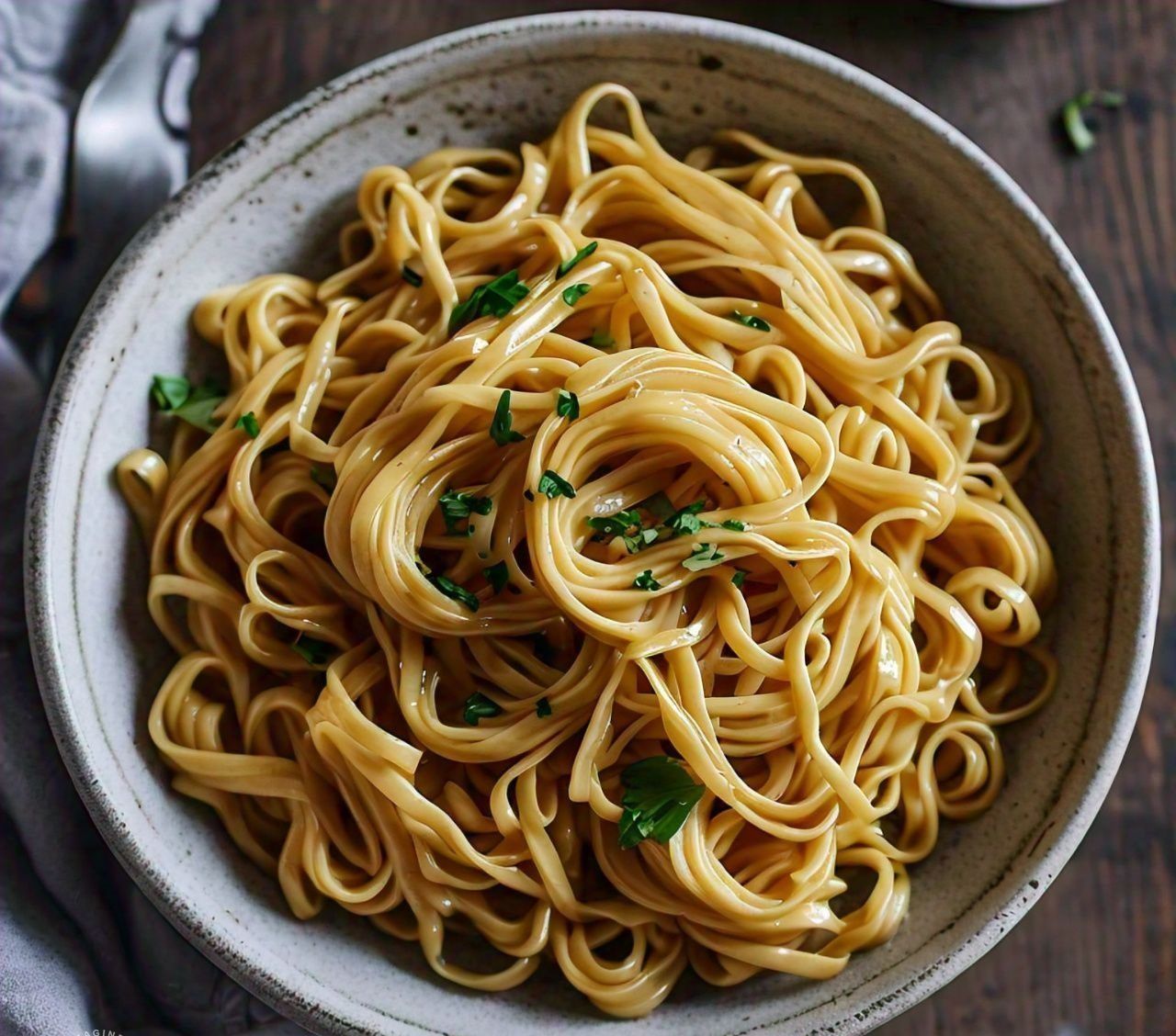Are Egg Noodles Gluten-Free? A Comprehensive Guide to Gluten in Egg Noodles
For those who follow a gluten-free diet, navigating the food landscape can sometimes feel challenging. Gluten, a protein found in wheat, barley, and rye, is often hidden in common foods. One food that frequently raises questions is egg noodles. A popular ingredient in various dishes, from comforting soups to stir-fries and casseroles, egg noodles are loved for their chewy texture and subtle flavour. But are egg noodles gluten-free? This question is vital for people with gluten sensitivity, celiac disease, or those who are simply avoiding gluten for other health reasons.
This article explores the components of egg noodles, their gluten content, and alternatives for those seeking gluten-free options.
https://storiessphere.xyz/category/fashion/
What Are Egg Noodles Made Of?
To understand whether egg noodles are gluten-free, it’s essential to first look at their ingredients. Traditional egg noodles typically contain two main components: flour and eggs. However, the type of flour used determines whether the noodles contain gluten.
- Flour: The primary ingredient in most egg noodles is wheat flour, which contains gluten. Wheat gluten is the protein responsible for giving dough its elasticity, helping it hold its shape and giving noodles a chewy texture. Since wheat is a gluten-containing grain, traditional egg noodles made from wheat flour are not gluten-free.
- Eggs: Eggs are naturally gluten-free. They are added to the dough to give the noodles a richer flavour and a slightly firmer texture. However, while eggs themselves are safe for those on a gluten-free diet, their inclusion in egg noodles doesn’t negate the gluten from the wheat flour.
Given that the flour used in most egg noodles contains gluten, the answer to the question “Are egg noodles gluten-free?” is usually no if we’re talking about traditional varieties. However, that doesn’t mean all egg noodles are off-limits for people avoiding gluten.
Are There Gluten-Free Egg Noodles?
The good news is that gluten-free egg noodles do exist! Manufacturers have developed a range of gluten-free pasta and noodle alternatives to cater to the growing number of people with gluten sensitivities or dietary restrictions. These gluten-free versions replace wheat flour with alternative gluten-free flour while still incorporating eggs for that familiar texture and taste. Some common gluten-free flour alternatives include:
- Rice Flour: One of the most popular substitutes for wheat flour in gluten-free products is rice flour. Rice noodles, commonly used in Asian cuisines, can be shaped and cooked similarly to egg noodles. Although they may not have the same texture as traditional egg noodles, rice flour noodles offer a satisfying alternative.
- Corn Flour: Corn flour is another gluten-free option that can be used in egg noodles. Corn gives the noodles a slightly different flavour and colour, but it remains a viable substitute for wheat flour in many gluten-free recipes.
- Tapioca Flour: Often used in combination with other gluten-free flours, tapioca flour adds chewiness and elasticity to gluten-free dough. This makes it an excellent option for gluten-free egg noodles, as it helps mimic the texture of traditional wheat-based noodles.
- Potato Starch: Potato starch is sometimes used in gluten-free noodle recipes to add structure and consistency. When combined with other flours, it can create a dough that holds together well without the need for gluten.
- Chickpea Flour: Chickpea flour, made from ground chickpeas, is another gluten-free option that is becoming more popular in pasta and noodle products. It has a slightly nutty taste and is often used in combination with other flours to create a balanced texture.
Many brands offer pre-made gluten-free egg noodles, which are becoming increasingly available in grocery stores and online. These options cater to consumers who want to enjoy their favourite noodle dishes without the worry of gluten contamination.
How to Make Gluten-Free Egg Noodles at Home
For those who prefer to make their gluten-free egg noodles at home, the process is straightforward. While homemade noodles require a bit of time and effort, they allow for complete control over the ingredients. Below is a simple recipe for gluten-free egg noodles:
Ingredients:
- 1 cup gluten-free flour blend (you can use a mix of rice flour, tapioca starch, and potato starch)
- 2 large eggs
- 1/4 teaspoon xanthan gum (optional, for added elasticity)
- 1/4 teaspoon salt
- Water, as needed
Instructions:
- Mix the dry ingredients: In a medium-sized mixing bowl, combine the gluten-free flour blend, salt, and xanthan gum (if using).
- Add the eggs: Make a well in the centre of the dry ingredients and crack the eggs into the well. Use a fork to beat the eggs, gradually mixing in the flour until a dough begins to form.
- Knead the dough: Once the dough comes together, transfer it to a lightly floured surface and knead it for a few minutes until it becomes smooth and elastic. If the dough is too dry, add a small amount of water (a teaspoon at a time) until it reaches the right consistency.
- Roll out the dough: Divide the dough into manageable portions and roll each portion out into a thin sheet. You can use a rolling pin or a pasta machine if you have one.
- Cut the noodles: Use a sharp knife or a pizza cutter to cut the dough into thin strips resembling egg noodles. If you prefer a different shape, feel free to get creative.
- Cook the noodles: Bring a pot of salted water to a boil and gently drop in the gluten-free egg noodles. Cook them for 2-4 minutes, or until they float to the surface and are tender.
- Drain and serve: Drain the cooked noodles and toss them in your favourite sauce, broth, or dish.
This recipe can be adjusted based on the type of gluten-free flour you have on hand, and the addition of xanthan gum can help improve the elasticity and structure of the noodles, making them more similar to traditional wheat-based egg noodles.
Cross-Contamination Concerns
When buying gluten-free egg noodles, or any gluten-free product, it’s crucial to consider the possibility of cross-contamination. Many manufacturers process both gluten-containing and gluten-free products in the same facility, which increases the risk of gluten accidentally getting into gluten-free items. For individuals with celiac disease or severe gluten intolerance, even a small amount of gluten can trigger symptoms.
To minimize this risk, always look for gluten-free certifications on the packaging. The “Certified Gluten-Free” label ensures that the product has been tested and meets strict guidelines for gluten content, typically less than 20 parts per million (ppm), which is considered safe for most individuals with celiac disease.
Egg Noodles and Celiac Disease: What You Need to Know
Celiac disease is an autoimmune disorder in which the ingestion of gluten triggers damage to the small intestine. For those with this condition, consuming even trace amounts of gluten can lead to severe digestive issues, nutrient malabsorption, and long-term health complications. If you have celiac disease, it’s important to avoid traditional wheat-based egg noodles entirely and opt for certified gluten-free alternatives.
It’s worth noting that while gluten-free egg noodles are widely available, not all products labelled “gluten-free” are automatically safe for those with celiac disease. Always check the ingredients list and the manufacturer’s certification to ensure that the product truly meets the standards of a gluten-free diet.
Gluten-Free Diet Trends and Egg Noodles
The popularity of gluten-free diets has grown significantly in recent years, not just among those with gluten intolerances or celiac disease but also among people who believe a gluten-free diet can improve their overall health. This surge in demand has led to a wider variety of gluten-free products, including egg noodles, hitting the market.
Even for individuals without gluten-related health issues, trying gluten-free alternatives can be a great way to diversify your diet and explore new flavours and textures. Gluten-free egg noodles can be a versatile addition to your meal planning, offering the same comfort and satisfaction as traditional noodles.
Conclusion Are Egg Noodles Gluten-Free?
In summary, traditional egg noodles made from wheat flour are not gluten-free. However, there are numerous gluten-free alternatives available, both in stores and through homemade recipes. Whether you use rice flour, corn flour, or other gluten-free flour, it’s possible to enjoy egg noodles without the worry of gluten.
For those with gluten sensitivity or celiac disease, always check the ingredients and certification of store-bought products to ensure they meet your dietary needs. With the right approach, gluten-free egg noodles can be a delicious and satisfying part of any meal.







Post Comment